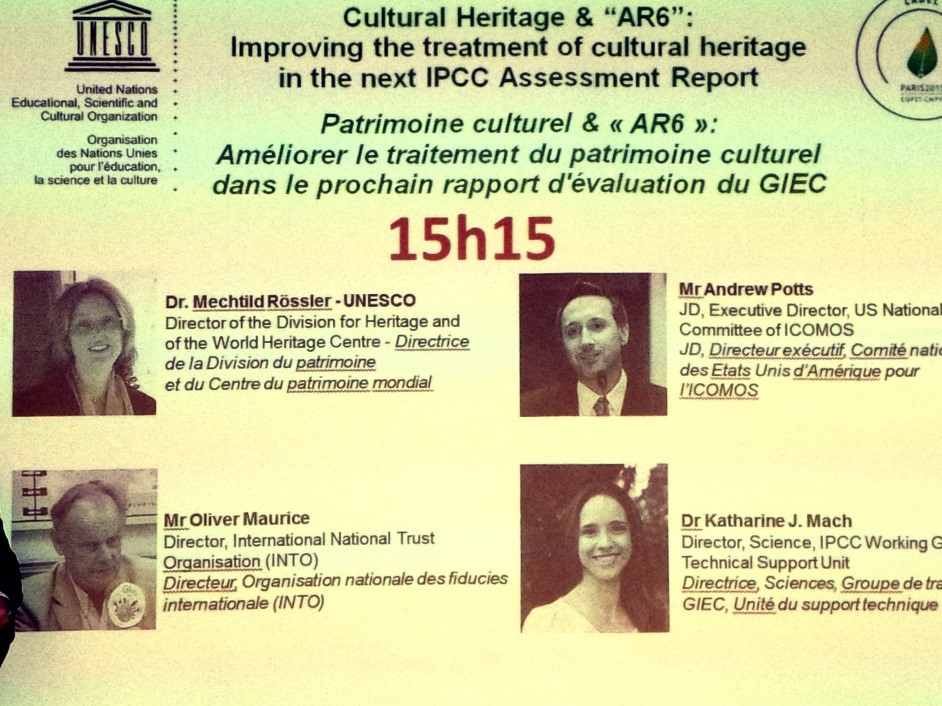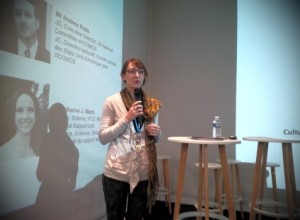-
Oliver’s Blog for Sunday December 6th.
Posted on December 7, 2015One of the highlights of INTO’s presence at COP 21 to date has been the Side Event and subsequent feedback session in the UNESCO Pavilion which took place on Saturday. Anika and I gave shortened presentations of what each of us had said on Tuesday at the side event except that I included a synopsis of Keith Jones’s talk within mine to give examples of mitigation and adaptation that the National Trust has undertaken.
The main points that have come out of all this are :
- We have opened doors to the IPCC and raised awareness of the need for cultural heritage to be given more prominence in the next (6th) Assessment Report on Climate Change
- We have established a closer relationship with UNESCO and the World Heritage Centre and the opportunity to share knowledge.
- UNESCO and its partners will seek funding to produce a report to which INTO will be able to contribute using our knowledge of the effects of climate change on the cultural heritage
In my last blog I referred to a side event that I had attended entitled ‘Loss and Damage : Who should Pay? A very good summary of that side event has appeared in a Pacific Islands newspaper called New Matilda. The link to the article is www.newmatilda.com/2015/12/07/paris-climate-talks-the-question-rich-nations-dont-want-to-answer
So what will the second week bring. The first week ended with senior negotiators from 195 countries producing, after 4 years work, a blueprint for a global accord to rein in global warming. However there are hundreds of points of discord and conflicting proposals which ministers will have to deal with this coming week. Almost all relate to defining obligations and expectations of rich and poor countries, as well as those that do not fit neatly into either category!
The blueprint was produced with minutes to spare after the deadline of noon imposed by the French COP presidency. That in itself gives some grounds for optimism that there is a will to succeed in finalising an agreement by the end of the COP, but will it be the right one?
The blueprint has been reduced from over 300 pages to around 40 which should make it more digestible; a further ground for optimism!
And the spirit of optimism continues with the widely held view that the negotiations are in a better place than they were in Copenhagen

 44 (0)20 7824 7157
44 (0)20 7824 7157

